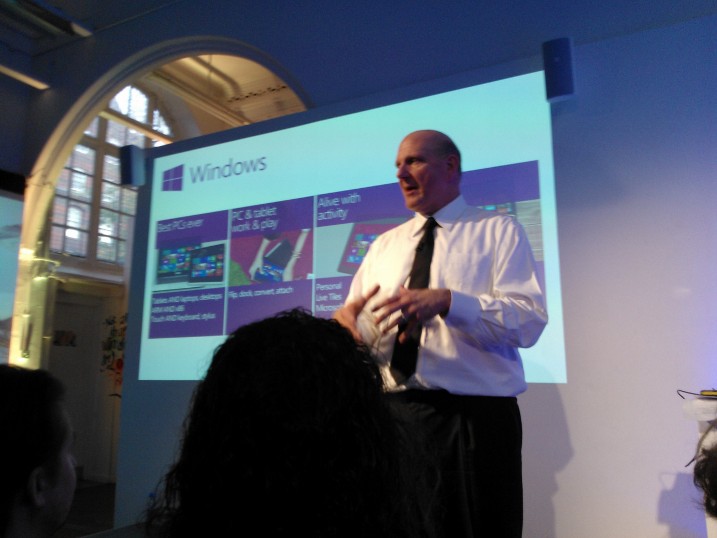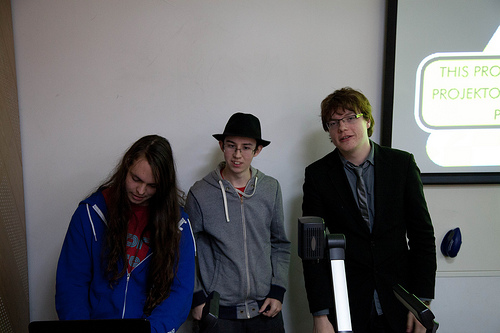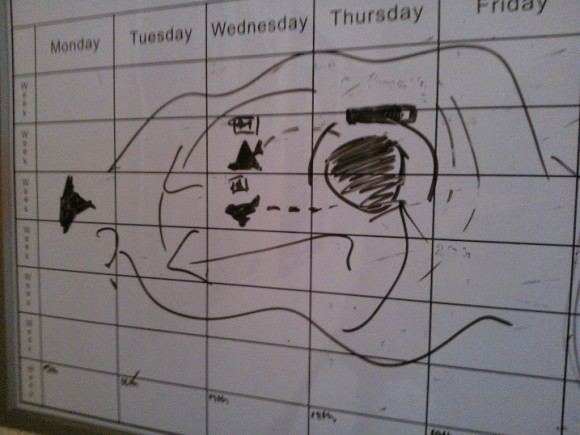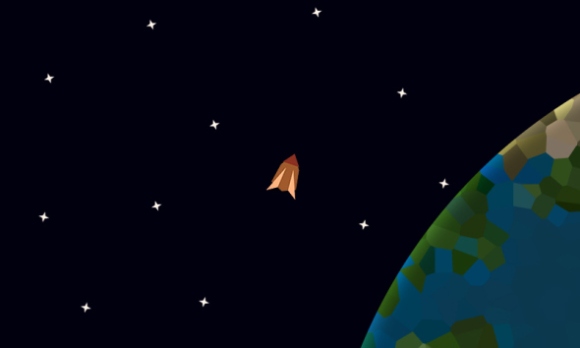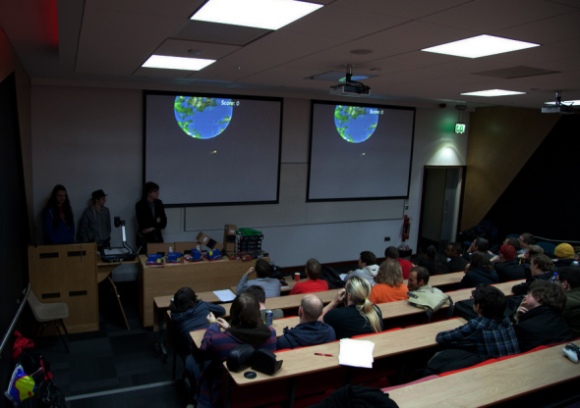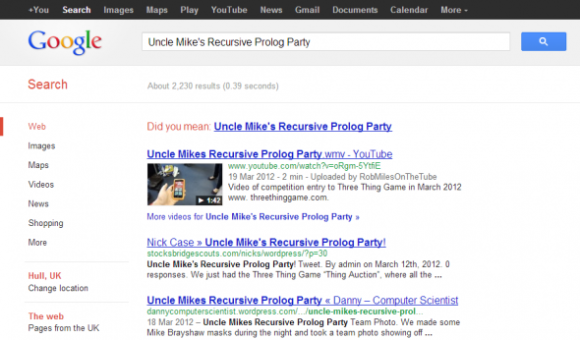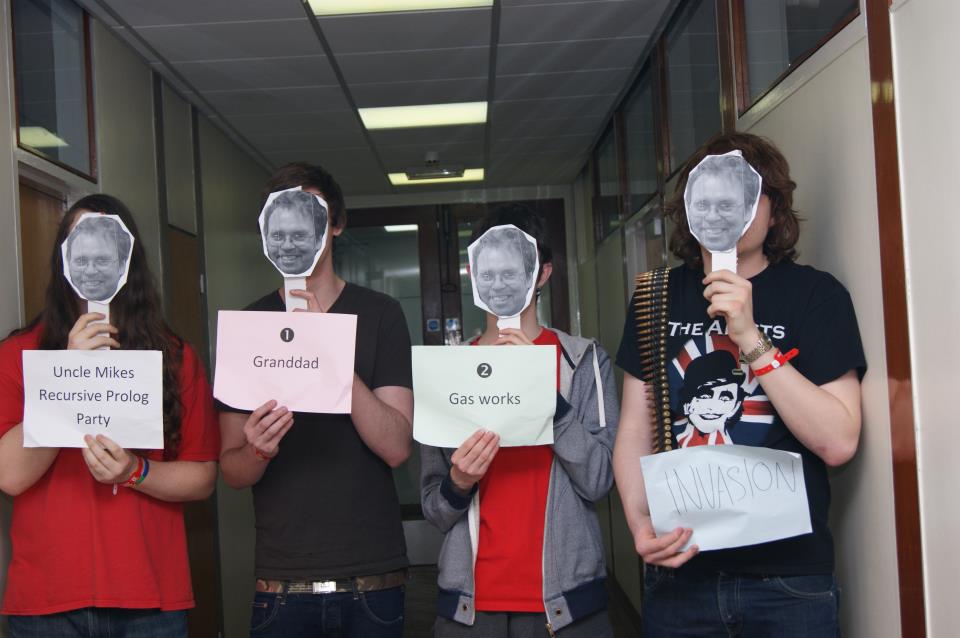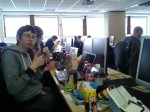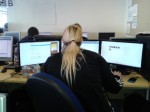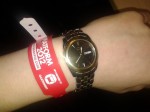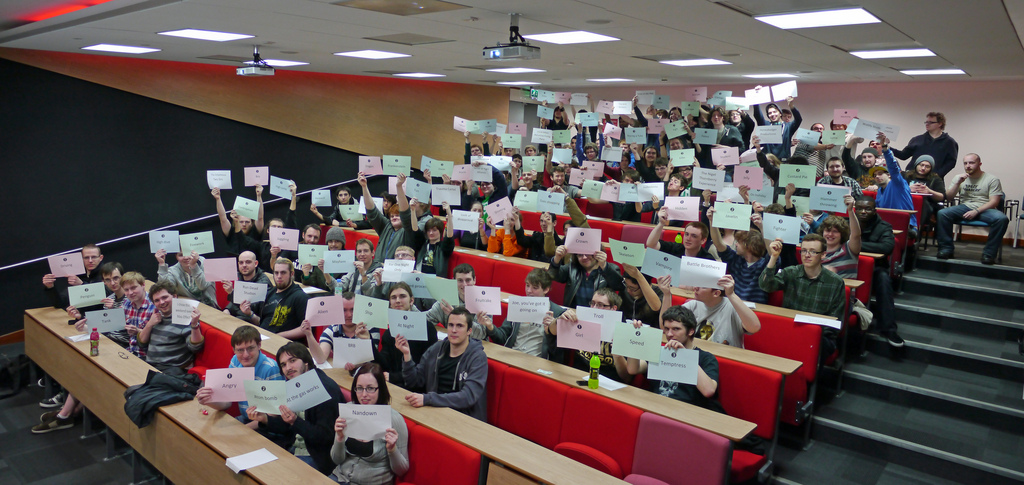Yesterday Nick Case and I traveled down to Modern Jago in London for an event set up for members of the Windows 8 | Elite program. The Event was particularly exciting as the CEO of Microsoft, Steve Ballmer, was presenting. I’ve been a fan of Ballmers since seeing the world famous “Developers” video on YouTube. Whilst a lot of people, myself included, find it funny I think its refreshing to see someone so genuinely passionate about what they do.
Nick and I caught our train from the Hull Paragon Interchange at 10:30 and were enjoying our journey until an announcement played on the train — “Please have all tickets and railcards ready for inspection”. At this point my heart sunk, I’d forgotten my Student Railcard in the rush to get out. Fortunately when the train guard came to me she was merciful and told me not to forget it again but that she would let me off this one time.
We arrived in the capital around 1pm and set off on our way to Modern Jago following the Circle line — enthusiastically referred to as the “Bright Yellow Line” by the woman opposite me on the train — round to Liverpool Street Station from Kings Cross, from there it was only a few minutes walk to Club Row, the street on which Modern Jago is situated.
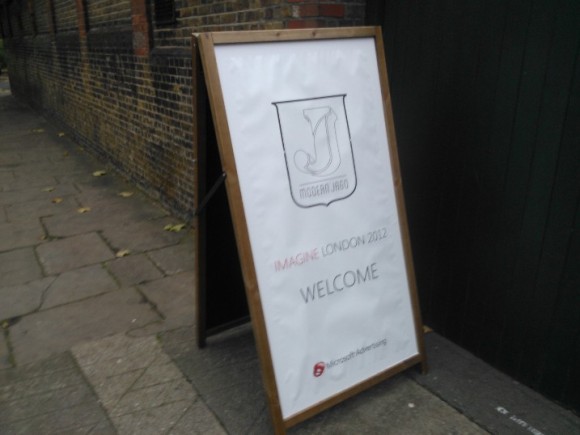
We were welcomed into the garden of Jago as there was an event which hadn’t yet finished still taking place in the hall. The building itself was formally a school and a lovely contemporary mix of old on the outside and modern on the inside.
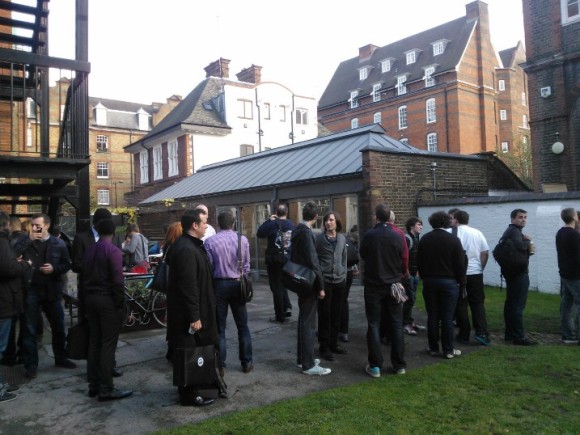
Whilst in the network I had a look round for any familiar faces and spotted one of my fellow MSPs, Abhilaksh Lalwani as well as a few people from Black Marble Studios.
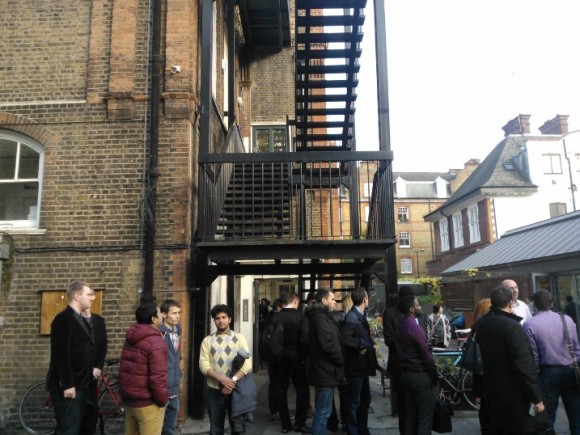
After around 20 minutes or so we were invited inside to be seated for the event. The chairs were in straight lines across the hall floor and I quipped “It’s just like a lecture apart from we don’t have anyone we’re friends with to look for”, with that we tried to find 2 seats next to each other in a decent position. The ones we found were 1 row from the front right in front of the speakers podium, fantastic.
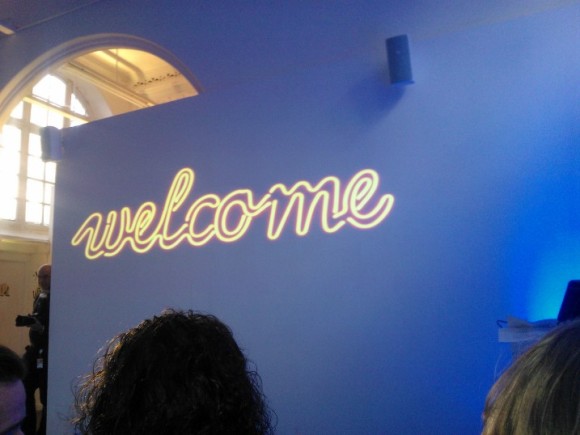
First up was a short presentation about some of the applications that had been developed by people in audience, some were quite impressive. Of particular note were the ever impressive Cocktail Flow, The British Airways Inspiration app and UK Bus Checker.
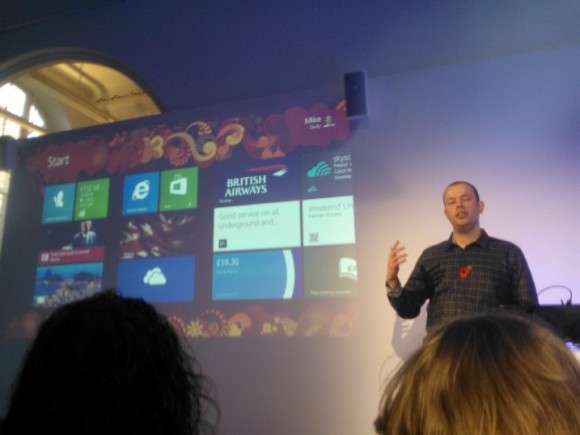
The Best of British app showcase finished with a look at the latest Windows Phone 8 advert, showing off the personalized start screen of a certain CEO. You can see it here:
At the end Mr. Ballmer was welcomed on stage with the introduction “heres the person who owns that phone”. He entered with his usual enthusiasm and thanked everyone for being at the event and for supporting Microsoft through the biggest change in the companies history. The event was very much about how much Microsoft values its partners and the people who develop for its platforms — underlined by the fact the final slide on Mr Ballmer’s slide deck simply said:
Succeed With Us.
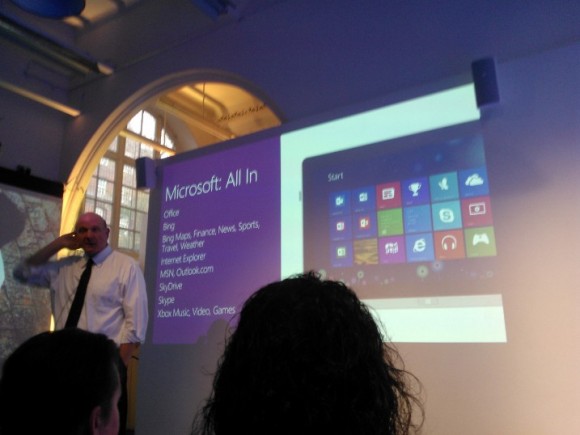
The Microsoft CEO explained Microsoft ideas and ideals behind the Windows and Windows Phone platforms and explained how every department within the company had some involvement with the finished products, in other words Microsoft are all in.. Steve felt as if he had “bet the farm on Windows 8” saying
When you change so dramatically your main product, which is used by over 600 million people worldwide of course you’ve taken a huge gamble
Steve went on to explain how Microsoft didn’t see Windows 8 as merely an update to an operating system but as a complete change on the idea of what a device is an can be, he highlighted this by an incredible series of weird hand motions explaining how some of the new laptop form factors are tablets that dock, some have hinges and how some are just like normal laptops but with touch screens.
This moment has remained in my mind partly because it was quite funny, but mainly because it symbolized to me how great a speaker Steve Ballmer is. He was so animated and genuinely excited about everything he spoke about — it was infusing and made you inspired to work on his platform. And guess what? That’s exactly what he wanted. I’d love to be able to speak to crowds of people in a similar style.
After Steve had finished he didn’t take any questions, which was a shame. I really really wanted to ask him the rumours of a XBOX Surface Slate 😛 But we did get to have a look at some of the new Microsoft Surface’s and some Lumia 820’s — both of which really impressed both Nick and I.
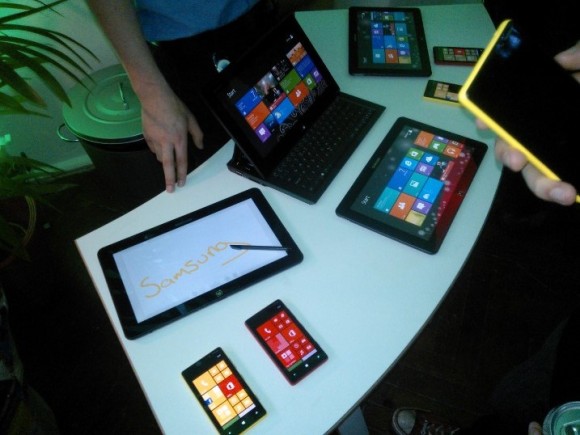
I even took the time to put my website up on one of the Microsoft Surface Devices. I was surprised to find whilst doing this that the Type Cover (the physical keyboard dock) was actually perfect for my fingers and provided a better typing experience than my 15 inch dell laptop keyboard. The tap cover was still good but I imagine it would take a bit of time to get used to. I’ve heard some bad things about the screen resolution of the surface, but frankly I couldn’t see any issue and I was impressed by the field of view.
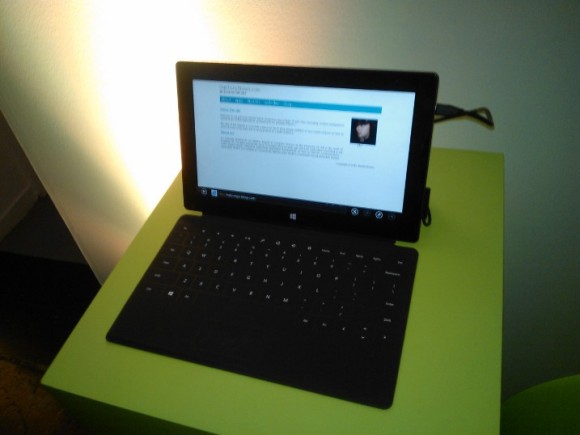
Shortly after I played with all these lovely devices it was time to go. Thanks to Phil Cross and Co for setting up the event, Steve Ballmer for making the time to talk to us all and for a fantastic presentation and Nick for coming with me! 🙂
Danny.
